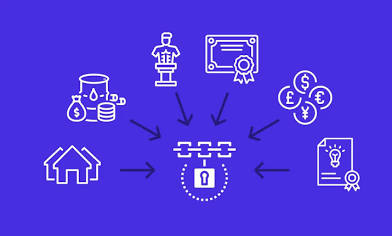IT IS YOUR MONEY
Smart Contracts Automate Asset Management Tokenization.
Smart contracts are self-executing agreements coded on blockchain that automate asset management processes like dividend distribution, compliance checks, and ownership transfers. Used in tokenized real estate, funds, and bonds, they reduce administrative costs and human error. Platforms like Ethereum and Polygon enable secure, transparent execution. This technology is transforming how assets are governed and maintained.

What are Smart Contracts and How Do They Work?
Smart contracts are programmable digital agreements that automatically execute predefined actions when specific conditions are met—without intermediaries. Built on blockchains like Ethereum, they govern asset behavior in a tamper-proof, transparent environment.
For example, a smart contract for a tokenized apartment building can be programmed to:
Collect rent in stablecoins
Distribute monthly dividends to token holders
Enforce transfer restrictions based on investor accreditation
Trigger maintenance fund withdrawals when sensor data indicates repairs
Because the code is immutable and publicly verifiable, all parties can trust the outcome without relying on third-party administrators.
Applications in Digital Asset Management
In tokenized real estate, platforms like RealT use smart contracts to automate rental income distribution. When a tenant pays rent in USDC, the contract instantly splits the funds among thousands of fractional owners, deducting management fees programmatically.
For tokenized funds, smart contracts handle portfolio rebalancing, dividend payouts, and investor onboarding. If a fund holds 10 tokenized bonds, the contract can auto-reinvest maturing principal into new issuances based on predefined criteria.
In private equity and venture capital, smart contracts manage cap tables, vesting schedules, and exit distributions. When a startup is acquired, proceeds are automatically allocated to investors, founders, and employees per the encoded agreement.
Real-World Efficiency Gains
In 2023, a Swiss real estate firm tokenized a commercial property and deployed a smart contract to manage leases and payments. Administrative costs dropped by 60%, and dividend processing time fell from 14 days to under 2 hours.
BlackRock’s BUIDL Fund uses smart contracts to verify investor eligibility, settle transactions, and distribute daily yields—all without manual intervention. This reduces operational risk and audit complexity.
Similarly, MakerDAO’s smart contracts govern billions in collateralized debt, demonstrating scalability and reliability in high-value financial systems.
Security, Limitations, and Best Practices
While powerful, smart contracts are only as secure as their code. Bugs or vulnerabilities can lead to exploits—highlighted by incidents like the 2016 DAO hack. To mitigate risk, leading platforms use:
Third-party audits from firms like CertiK or OpenZeppelin
Upgradeable contract patterns with governance controls
Multi-signature wallets for critical functions
Additionally, legal enforceability remains a gray area. Hybrid models are emerging where smart contracts operate within traditional legal frameworks, ensuring recourse if disputes arise.
As standardization improves, smart contracts are becoming the backbone of digital asset infrastructure.
They are not replacing human oversight but augmenting it—enabling faster, more accurate, and scalable asset management across global markets.
To discover how smart contracts can streamline your investment operations and reduce overhead, visit DigitalAssets.Foundation and speak with experts. FREE consultation.

More News
© 2026
